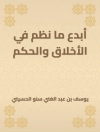The Complete Poetical Works of Rudyard Kipling encompasses an extensive collection of over 570 poems that illustrate the remarkable range and depth of Kipling’s literary prowess. Spanning themes from imperialism and adventure to introspection and human experience, his poems reflect the complexities of the late Victorian and early 20th-century milieu. Kipling’s distinctive use of rhythm, strong narrative voice, and colloquial diction imbue his verse with both accessibility and lyrical beauty, inviting readers into richly crafted worlds that resonate with the cadence of their times. Works such as ‘If—’ and ‘The Man Who Would Be King’ capture the values and conflicts of an era marked by colonial ambition and personal striving, while also showcasing Kipling’s ability to evoke profound emotional landscapes. Rudyard Kipling, born in India in 1865, was deeply influenced by his upbringing amidst colonial culture, which permeates his body of work. As a witness to the British Empire’s expansion, his experiences and observations provided a unique lens through which he articulated the prevailing social and political climates of his time. Kipling’s writing reflects not only personal narratives but also broader historical contexts, making his poetry a vital resource for understanding the era’s ethos. This anthology is a quintessential addition for anyone seeking to comprehend the intricate layers of Kipling’s poetic genius while engaging with the broader historical narratives of the British Empire. With vivid imagery and compelling themes, Kipling’s work continues to resonate, making this collection invaluable for both scholars and casual readers alike.
A propos de l’auteur
Joseph Rudyard Kipling (1865–1936) was an English journalist, short-story writer, poet, and novelist. He was born in Bombay, in British India, which inspired much of his work. Kipling is recognized for his innovations in literature, particularly in the short story genre, but he is perhaps best known for his poetry and children’s stories. His ‘The Complete Poetical Works of Rudyard Kipling’ illustrates the depth and variety of his verse, encompassing themes of imperialism, heroism, and the British soldier’s experience, often marked by his distinctive rhythm and use of dialect. Kipling’s poetry ranges from the rousing ‘The Ballad of East and West’ to the reflective ‘If—, ‘ a staple in British cultural and educational spheres. Kipling was awarded the Nobel Prize in Literature in 1907, the first English language writer to receive the prize, and to date its youngest recipient. His work has consistently generated both acclaim and controversy, reflective of the complexities of the imperial milieu that informed it. Kipling’s literary style combined narrative momentum with a pronounced moral dimension, utilizing a plain, declarative language that belied its sophistication and latent symbolism.












